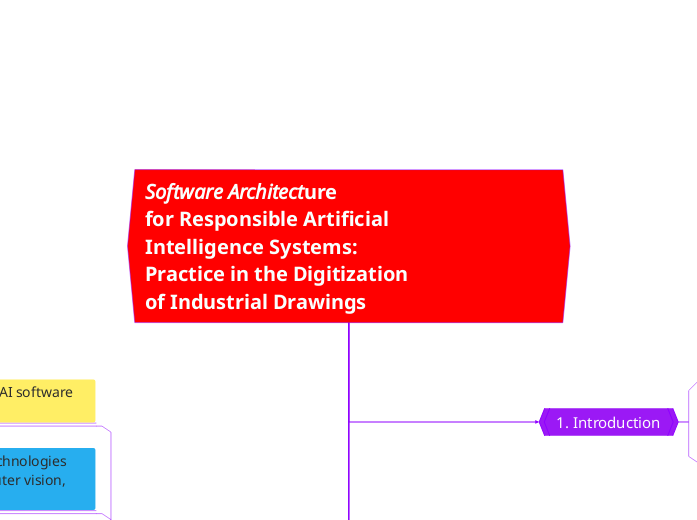Software Architecture
for Responsible Artificial
Intelligence Systems:
Practice in the Digitization
of Industrial Drawings
1. Introduction
Purpose of responsible AI in industrial drawing digitalization
Challenges in digitizing historical drawings
Complexity in historical drawing formats, domain-specific knowledge, and high error risk in manual digitization.
3. Architecture Design
Architectural Patterns: MVC, Layered Architecture
Model View Controller (MVC) for modular design
Layered Architecture: Separates concerns, enhancing usability and style adaptability
Federated Learning for privacy
Federated Learning: Secures data by training models locally
Collaborative multimodel fusion
2. Key Components
Responsible AI software architecture
Responsible AI Principles: Aligns with EU's seven AI ethics principles (e.g., transparency, accountability).
Role of AI technologies (OCR, computer vision, etc.)
Computer Vision for element detection
OCR for text extraction
Knowledge Graphs for relational data
Quality attributes (Usability, High performance, Accuracy)
Usability: Non-AI professionals should navigate easily
Performance: Efficient processing for large, multi-page drawings
Security & Privacy: Protection through federated learning
4. Conclusion and Future Work
Benefits of AI in drawing digitization
Reduces time and errors in industrial drawing digitization
Future improvements (interaction methods, expanded AI stack)
More interactive options (e.g., voice control)
Expanding AI models to support various industrial applications
